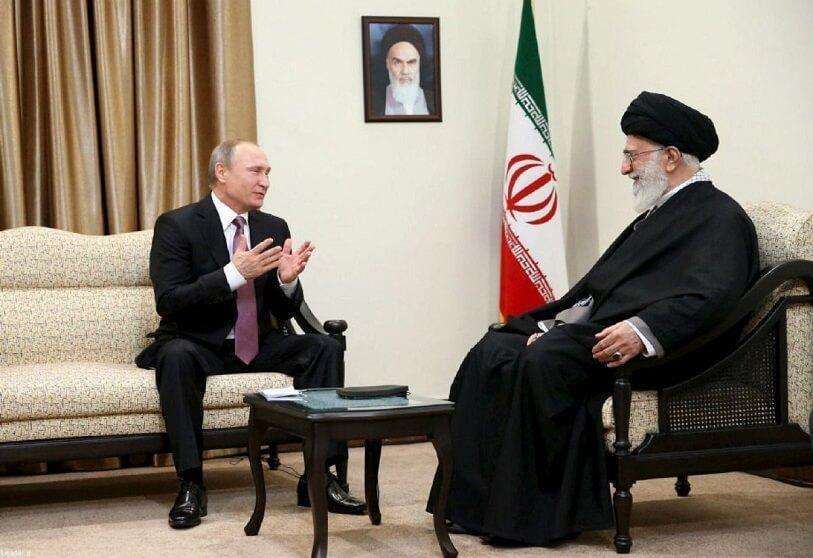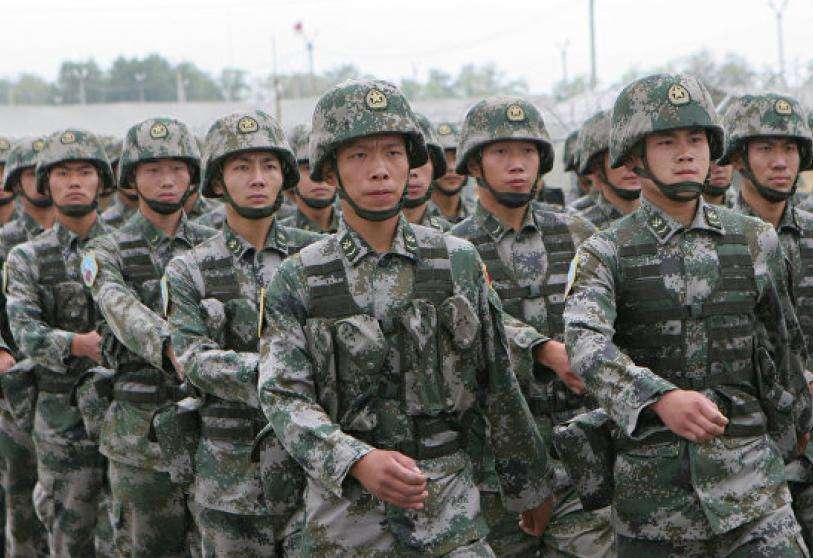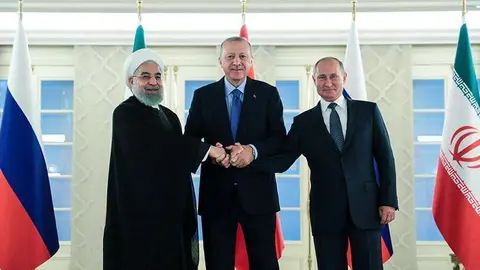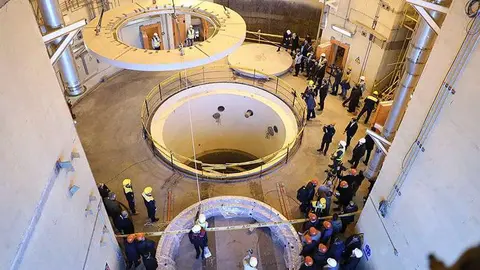Russia and Iran: a marriage of convenience

The wars in Ukraine and Gaza have had a myriad of consequences. Among them is the rapprochement between Iran and Russia. The presidents of both states share similar views on international affairs, as well as a strong rivalry with Israel.
The meeting between Iranian President Ebrahim Raisi and Russian President Vladimir Putin in Moscow on 7 December consolidated the diplomatic engagement between the two nations since the outbreak of the violent confrontation in the Gaza Strip. However, it is worth mentioning that this has not been the only rapprochement between the aforementioned actors. When the conflict had just begun, Iranian and Russian leaders were already communicating by telephone or through face-to-face meetings between officials.

Russia and Iran have not only reached an understanding bilaterally. For example, with the 'Astana Formula', a tripartite meeting focused mainly on the Syrian conflict and involving Russia, Iran and Turkey, they have also discussed the Israeli-Palestinian war, agreeing on the importance of halting Israeli attacks and ending the humanitarian crisis in Gaza.
As with Syria, Gaza could now be an important area of understanding and cooperation between the three nations - but whatever the case, what is clear is that the interests, at least between Iran and Russia, do coincide.
On the other hand, the rapprochement between Moscow and Tehran began to materialise with the start of the armed confrontation in Ukraine. When Russia launched the first attacks, Iran took a public stance in favour of the offensive. Moreover, the Iranian capital directly accused the West as the main culprit of the international crises.
Iran's nuclear programme, the fact that popular protests in Iran were suppressed in 2022 and support for Russia in the conflict with Ukraine are factors that, now added to the problem in Gaza, have built a wall between Iran and the West.
If one thing is clear, it is that this incipient friendship has not been a spontaneous consequence of the current conflicts. In essence, it represents a geopolitical strategy by which both Putin and Raisi seek to defeat what they perceive as "the tyranny of the West" in order to re-establish a new order in which Russia and Iran would assume hegemony, within a multipolar scheme.
From this we can deduce a relevant reality in the relationship between the two countries: the United States is not to Tehran's liking, nor is it to the Kremlin. As with friendships between individuals, countries usually find affinity in the rejection of a third actor. So much so that both are concentrating efforts to undermine US influence in the world.

In this scenario, China should not be ignored. While Russian interest in Beijing has long been known, the two Asian giants now say they will join forces to eradicate US 'hegemonic and bullying behaviour'. Iran also appears to be increasingly interested in closer ties with China.
In 2023, China, Russia and Iran conducted joint military exercises in the Gulf of Oman region, and again this year. The Chinese Defence Ministry announced that the operations were a necessary action to "jointly maintain regional maritime security". Or, in other words, to damage US hegemony to the point where it ends.

It should not be surprising to see the names Iran and Russia together for a while at least, because the two nations are well aware that it is in their interests to go hand in hand.










